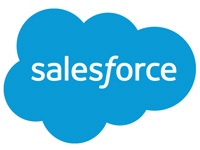Matt Keenan is SVP of Aptean’s CRM product group.
In this exclusive interview, CRM Buyer discusses with Keenan some of the issues surrounding intelligent automation.

CRM Buyer: What are some of the most significant trends in CRM right now?
Matt Keenan:
I would point to three specific trends. The first is the rapid evolution of human-system interaction. Gone are the days of sitting in front of a laptop and interacting with CRM. Customers are looking for multiple channels. The way people are interacting with applications and data is evolving radically.
Second, users are demanding more of and from their CRM systems, whether it be simple things like efficiency, or more complex things like recommendations and predictions.
Third, the expectation of the users these days is that there is no learning curve — that the application fits seamlessly into their daily work habit. A lot of that can be traced back to the consumer app market. When you download an app, it’s got to be intuitive and immersive. You don’t get a multiday, in-person training session. That set of expectations is flowing into enterprise business applications.
CRM Buyer: CRM needs to need to be intuitive, then?
Keenan:
Certainly it needs to be intuitive. The application needs to guide the user regardless of device. It has to be incredibly intuitive. It has to be immersive. Especially as we drive greater and greater mobility, the need to shift from one user experience to another is important.
I personally believe that the CRM applications that will be the bellwether applications are those that truly are frictionless — that make it is easy and seamless for someone to incorporate into their flow. We don’t pay people to use CRM. We’ve got to focus on how applications fit in that frictionless space.
CRM Buyer: How can automation help make CRM effective?
Keenan:
I look at automation on two tiers. First, it’s about efficiency. If I can take you as a user from point A to point Z with a minimum number of screens and clicks, I’m going to have effective automation.
Beyond efficiency, the second-level involves actionable insights. I stress both words equally. Having an application push insights to you that are not actionable is inefficient. I have to be able to pick up the phone and do something. I have to be able to create a marketing campaign that drives a specific behavior. At the value level, it has to drive actionable insight.
CRM Buyer: How can the automation be made useful?
Keenan:
First off, there has to be a demographic ecosystem of data. I have to be able to identify the “what” that surrounds an interaction. What industry is my customer in? The demographic is absolutely paramount to drive automation.
Second is the ability to do effective comparisons. Whether I compare to a perfect-use case, or I learn over time what the standard is that I compare to, I have to have the ability to compare things that are happening with things that are successful.
The third tier, and the hardest thing to do, is the ability to learn over time. What works today as a comparative could change with a disruptive competitor coming into the market.
CRM Buyer: What is the right mix of automation and human analysis?
Keenan:
There always should be eyeballs with a brain behind them looking at any recommendation. I strive for that 50/50 balance. I want our CRM applications to be able to learn, but I need to be able to tweak or modify that learning. In order for something to be actionable, there needs to be a human. I always talk about it being a recommendation that someone has to pick up and act on.
CRM Buyer: What’s in the future for CRM? How is it evolving?
Keenan:
It depends on the time horizon. If I look in the short term, I believe there’s going to be a demand for simplicity. The default gear is to make things too complex. We are asking our people to do more and more to be successful in their roles, and we’re going to see greater demand for simplicity.
Medium term, there will be alternative user experiences. One of the things that we’re playing with right now is automated conversational entities — bots — that have the ability to use an instant message tool, like Skype, for queries. Voice-based controls are going to change the way people interact with their CRM application. If I could ask my CRM application what my customer’s order history is, or what outstanding service requests they have, and not necessarily have to log into a CRM application, we’ll get to the point where CRM becomes invaluable.
In the longest term, I think the evolution of insight-driving recommendations and application of machine learning and predictive analytics will really come to the forefront. As we start to look out at the longest-term horizon, the continued expansion of machine learning will drive greater and greater value for actionable insights.

























































